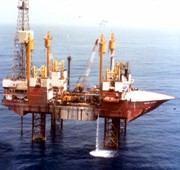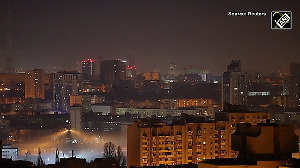 Expects exemption of oil and gas profits from minimum alternate tax and all cess in the nature of excise duty are to be subsumed in GST.
Expects exemption of oil and gas profits from minimum alternate tax and all cess in the nature of excise duty are to be subsumed in GST.
Current status
India's imports of crude oil are increasing. Total import dependence has reached 80% and is likely to keep growing.
Oil price volatility has also increased. 2008 saw an unprecedented rise in oil price on the world market when international WTI crude oil prices rose to $145 per barrel in May 2008, which fell to $40 per barrel in January 2009.
Currently Oil prices have again risen to $80 per barrel.
Duty structure
Crude oil as well as Natural gas produced under NELP contracts is not liable to duties of Excise under the Central Excise Act, 1944.
However Rs 2,500 per tonne is being charged as cess and Rs 50 per tonne as National calamity contingent duty. Regards Custom duty it was made nil from 5 per cent. However it attracts Rs 50 per tonne as NCCD.
Industry Expectation
-
Currently undertakings engaged in the commercial production or refining of the mineral oil enjoys a 7-year tax holiday beginning from the year in which the undertaking starts commercial production.
These undertakings are not in a position to generate any profits in the initial 3-4 years after they begin commercial production due to heavy depreciation claims.
Thus the industry expects 100 per cent tax holiday for a period of any 10 consecutive years out of 15 years beginning with the year in which the undertaking starts commercial production or refining of mineral oil at par with power sector.
However, if this is not possible atleast these undertakings should be given the flexibility or option, to choose any 7 consecutive years in which the deduction can be claimed, out of the first 15 years beginning with the year in which commercial production or refining of mineral oil commences.
-
The industry expects that the service tax paid on critical services consumed by E&P activities should be refunded so that the entire expenditure incurred by the company should go towards exploration and production activities rather than funding government taxes.
The industry also expects that the State GST incurred on services received by them are allowed to be offset against the VAT / CST payable on sale of crude and natural gas.
-
The NELP and CBM Policy and the contracts executed by the Government of India with contractors for exploration and production of petroleum and CBM allow contractors to claim customs duty exemption for all goods imported into the country for the use in operations related to the exploration, development and production of petroleum.
However, the list of items provided in the notification is not exhaustive and does not cover all goods required to be imported for the purpose of the operations. So, few modifications are required to enlarge the list to make it more exhaustive.
-
The industry expects deduction for expenditure incurred on drilling and exploration activities by an Indian company with overseas production block
-
The industry expects necessary amendments may be made in CENVAT Credit Rules, 2004 to facilitate deemed service provider to avail CENVAT credit of tax/ duty paid on input/ input service in India by foreign service provider in relation to execution of work and utilise for payment of service tax on output service.
Deemed service provider is the Indian company who has received the service provided by foreign service provider and is also liable to pay taxes.
-
The industry expects all cesses in the nature of excise duty are to be subsumed in GST as per the White Paper. In line with the above, OID Cess, which is duty of excise, should also be subsumed into the GST. Since Cesses are forming part of GST, so would NCCD on the Crude form part of GST, with its current exemptions for NELP Crude.
-
The profits arising from the commercial production or refining of mineral oil were granted a 7-year tax holiday under section 80-IB of the Income tax act.
However, MAT at the rate of 10 per cent (plus surcharge and education cess) is payable on the book profits earned by a company if the tax payable on its taxable income under the normal provisions of the act is lower than 10% of its book profits.
No exemption has been granted to profits earned from commercial production or refining of mineral oil, which are otherwise fully exempt from income tax for a period of 7 years, from the levy of MAT.
These companies normally earn higher book profits in the initial years after commercial production begins, since the tax deductions in respect of exploration and drilling expenditure is granted on an accelerated basis. The industry expects exemption of oil and gas profits from minimum alternate tax.
Analysts/market expectations
We expect tax holiday would be extended from 7 years to 10 years for oil and gas discoveries in order to increase investments to secure energy supplies. Also, some concessions on service tax may be given to the oil & exploration companies
Stock to watch
ONGC, RIL, Cairn India, Oil India
Outlook
Upstream exploration production activities, which have remained stagnant for over a decade rose in 2009 significantly, oil by 11 per cent and gas by 53 per cent over the previous year.
RIL KG D-6 gas production commenced with effect from April 1, 2009, which will nearly double the supply of much needed natural gas for Indian industries.
Cairn India started the production of crude oil from Barmer Oil Field in August 2009. Oil companies are also trying to increase their presence internationally.
Any benefits given to the sector can help find more oil and gas and ultimately help contain the pace of increase in POL imports.






 © 2025
© 2025